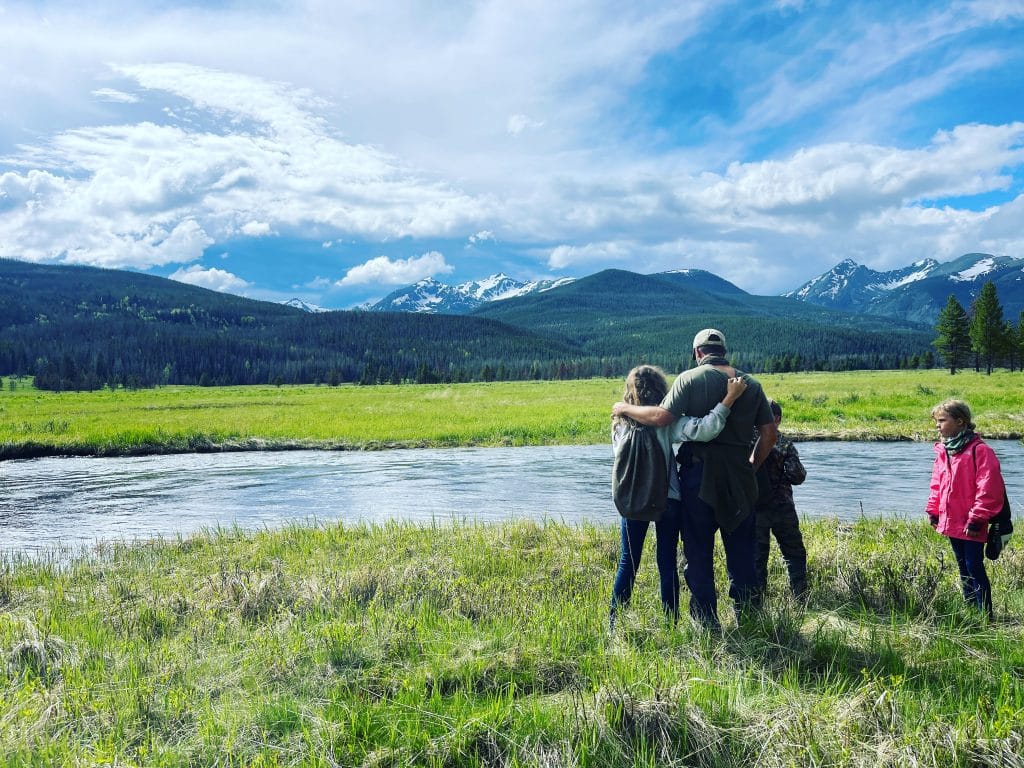Learn what prepper purchases trigger government reporting requirements. Understand legal thresholds for precious metals, ammunition, medical supplies, and tactical gear that create data trails.
Want weekly strategies for building preparedness and survival skills? Subscribe to my FREE newsletter at On Three Newsletter for practical advice with smart preparation.

Preparedness is practical and increasingly mainstream. Millions of Americans quietly store food, medical supplies, and essential gear. But history shows that what's considered responsible citizenship today can be treated very differently when crisis hits tomorrow.
The clearest American example comes from April 5, 1933, when President Franklin D. Roosevelt signed Executive Order 6102. Under authority of the Trading with the Enemy Act of 1917 as amended by the Emergency Banking Act, this order forbade "the hoarding of gold coin, gold bullion, and gold certificates within the continental United States."
According to Wikipedia's article on Executive Order 6102, Americans were required to deliver their gold to Federal Reserve banks by May 1, 1933 (giving them less than one month to comply) in exchange for $20.67 per troy ounce. The penalties were severe: fines up to $10,000 (equivalent to approximately $240,000 in 2024 dollars) and up to 10 years in prison, or both.
This wasn't aimed at criminals. It targeted ordinary citizens protecting their savings. The order allowed individuals to keep only $100 in gold coins (about 5 troy ounces) and exempted rare coins "having recognized special value to collectors." More than 2,600 metric tons of gold were ultimately confiscated, with a value in the billions of dollars today.
Shortly after the confiscation, Roosevelt raised the official gold price from $20.67 to $35 per troy ounce through the Gold Reserve Act of 1934, effectively devaluing the dollar by 58% and ensuring citizens received far less value than their gold was worth. Americans couldn't legally own gold again until December 31, 1974, when President Gerald Ford repealed the order.
This historical precedent matters because it demonstrates how quickly private property can be redefined during declared emergencies. What's legal today becomes controlled tomorrow when government decides emergency powers are necessary.
I witnessed a modern version of this dynamic while volunteering for months in Hurricane Helene devastated communities across North Carolina. In the chaos following the storm, desperate people looted fuel and food. They weren't criminals, they were terrified they wouldn't survive. Fear was thick in the air.
Reliable volunteer groups I worked with reported that FEMA collected and redistributed supplies as part of their emergency response. The lesson was clear: in crisis moments, control over resources shifts rapidly, and personal stockpiles can be viewed as assets to be taken, managed or redistributed.
This is why awareness matters more than paranoia. Understanding how modern surveillance systems work lets you prepare responsibly while minimizing unnecessary exposure to data collection systems that already exist.
Check out my Hurricane Helene volunteer experience and lessons learned at Lessons Learned where I break down what actually happened on the ground versus what made the news.

Widespread data monitoring became publicly known through National Security Agency programs revealed in the early 2000s, showing how communications are collected and analyzed at scale. Financial reporting laws established by the Bank Secrecy Act of 1970 created the foundation for tracking transactions. Retail systems, shipping networks, and data brokers track consumer activity constantly.
This isn't conspiracy theory. It's documented reality built into commerce, finance, and national security operations. The question isn't whether data gets collected. The question is understanding which activities trigger reporting requirements and how to prepare legally while maintaining reasonable privacy.
Financial reporting is among the oldest forms of monitoring in America. According to FinCEN (Financial Crimes Enforcement Network) regulations, dealers must file Currency Transaction Reports when cash transactions exceed $10,000. This applies to precious metals purchases, not because preppers are targets, but because large cash transactions can indicate money laundering.
What Triggers Reports:
What Doesn't Trigger Reports:
The 1933 gold confiscation specifically exempted rare and collectible coins. This created the modern numismatic coin market as a potential hedge against future policy changes. While no one can predict government actions, understanding this history helps informed decision making.
Practical Strategies:

Basic first aid supplies like bandages and over the counter medications don't draw attention. But prescription drugs, antibiotics requiring prescriptions, IV fluids, and controlled substances are tracked because they overlap with regulated pharmaceutical supply chains.
The FDA and state pharmacy boards oversee these transactions. Large or unusual orders shipped to residential addresses can trigger reports, especially when they don't match typical consumer patterns. This targets illegal resale operations, not legitimate preparedness.
Controlled Items:
Uncontrolled Preparedness Medical:
Purchase through legitimate suppliers and keep receipts. For prescription medications, work with your doctor to get 90 day supplies when insurance allows. Build first aid capabilities through quality over the counter items and proper training rather than trying to stockpile prescription medications illegally.
Federally licensed firearms dealers must maintain records of all transactions. While there's no federal firearm registry, these dealer records can be requested during criminal investigations. Some states maintain their own registries or require background checks for ammunition purchases.
According to the Bureau of Alcohol Tobacco Firearms and Explosives, dealers must keep acquisition and disposition records showing:
What Creates Data Trails:
Minimizing Trails Legally:
Smokeless powder purchases exceeding 50 pounds require ATF Form 5400.4. Reloading primers, bullets, and cases generally don't have special reporting requirements but retailers often log sales data for their own inventory management.
The FCC licenses amateur radio operators and maintains a public database of callsigns. This isn't surveillance but regulatory compliance ensuring proper frequency use. According to FCC regulations, unlicensed transmissions can interfere with emergency services and are subject to enforcement.
Legal Amateur Radio:
Encrypted Communications: Encryption itself is legal in the United States. However, many satellite and radio networks automatically log signal activity for network management and compliance. This isn't targeted surveillance, it's built into how networks function.
The Bureau of Industry and Security regulates certain night vision and thermal devices under the Export Administration Regulations because they're considered dual use technology (civilian and military applications).
According to the Arms Export Control Act, violating export rules can result in fines up to $1 million and criminal penalties including substantial prison time. In 2007, ITT Corporation paid $100 million in penalties for exporting night vision technology without proper authorization.
Domestic Ownership: Owning night vision and thermal devices for personal use within the United States is completely legal. However:
Legal Use:
Storing gasoline for generators and vehicles is common and legal, but quantities matter. Local fire codes typically allow 25 gallons of gasoline in approved containers without special permits. Larger quantities may require permits and inspections.
The Hazardous Materials Transportation Act establishes penalties for violations. According to USC Title 49, civil penalties can reach $75,000 per violation and $175,000 if injury or death results. Criminal penalties include up to 5 years imprisonment, or 10 years if serious harm occurs.
Safe Legal Storage:
The Federal Aviation Administration requires registration for drones weighing over 0.55 pounds. According to FAA enforcement data from 2024, the agency proposed $341,413 in civil penalties against 27 drone operators for unsafe or unauthorized flights.
Penalties for Violations:
Legal Drone Operation:
Even without buying physical gear, your digital activity creates patterns. What you search, read, watch, and subscribe to gets logged by platforms, internet service providers, and third party data brokers.
Governments and corporations analyze this data to detect fraud, assess risk, and deliver advertising. Algorithms identify behavioral patterns, not necessarily individuals. But these patterns become part of your digital profile.
What Gets Tracked:

These items rarely appear on any kind of watchlist, but large commercial orders get logged in normal supply chain databases. This isn't surveillance but standard commerce, similar to tracking fertilizer (which has additional restrictions due to bomb making potential) or farm equipment.
May Have Special Restrictions. Dependent on County and Local Laws:
No Special Restrictions
Local Sourcing Benefits:
Q: Is the government actually tracking prepper purchases? A: Certain purchases trigger automatic reporting due to existing regulations (precious metals over $10,000 cash, firearms from FFL dealers, controlled substances, export controlled technology). This isn't targeted at preppers specifically but applies to all citizens. Most preparedness purchases create no special reports beyond normal retail data.
Q: Can the government confiscate my supplies like they did with gold in 1933? A: Executive Order 6102 proves government can redefine property rights during declared emergencies. While another gold confiscation seems unlikely, understanding history helps informed planning. Diversifying holdings, maintaining legal documentation, and staying informed about policy changes provides reasonable protection.
Q: Are cash purchases really more private? A: Cash transactions under reporting thresholds leave minimal paper trail compared to credit cards and checks. However, large cash purchases can trigger suspicious activity reports. The sweet spot is moderate cash purchases that don't create unusual patterns.
Q: Should I worry about my Amazon order history? A: Amazon maintains detailed purchase history and has cooperated with law enforcement requests. For truly sensitive purchases, consider buying locally with cash or using privacy focused vendors. For most preparedness items, Amazon purchases are fine but understand the data trail exists.
Q: Can I be prosecuted for legal preparedness activities? A: No. Preparedness is completely legal. Problems arise when people violate existing regulations (unlicensed radio transmission, illegal firearm modifications, prescription drug laws, export violations). Stay within legal bounds and document compliance.
Q: Is it illegal to talk about preparedness online? A: Absolutely not. Free speech protects discussing preparedness, survival skills, and emergency planning. However, discretion about specific stockpile quantities and locations prevents creating security risks. Share knowledge freely, but protect operational details.
Q: Do I need a lawyer to stay compliant? A: For basic preparedness, no. For complex situations involving large precious metals purchases, significant ammunition stockpiling, or export controlled equipment, consulting an attorney familiar with relevant regulations provides peace of mind. Most preppers never need legal counsel.
Q: What's the single most important thing preppers should know about surveillance? A: Understanding the difference between legal compliance and privacy. Many reporting requirements are automatic (dealer obligations, not targeting you personally). Focus energy on legal compliance first, then privacy measures that fit your situation and risk tolerance.
Responsible preparedness is entirely legal and increasingly mainstream. Understanding how surveillance and reporting systems actually function gives you power to navigate them wisely without falling into paranoia or illegal activity.
The systems exist for regulatory, commercial, and national security reasons. They're not specifically targeting preppers. But they do create data trails that become relevant when emergencies shift normal rules.
History teaches that what's legal today can become regulated tomorrow. The prepared individuals who understand how these systems work will be far better positioned to protect and provide for their families when circumstances change.
This isn't about fear. It's about informed preparation that's both smart and lawful.
What's the worst that can happen? You build genuine security while maintaining reasonable privacy, stay completely legal, and sleep better knowing you're prepared without unnecessary risk.
Let's go On3.
Disclaimer
This article is for educational and informational purposes only and does not constitute legal, financial, or professional advice. All information is based on publicly available regulations and historical records in the United States as of 2025. Laws vary significantly by state and locality. For specific legal questions, consult official government resources or a qualified attorney licensed in your jurisdiction. The author assumes no liability for actions taken based on this information.
About Jason Salyer

Jason Salyer is the creator and host of the On Three brand, specializing in practical survival, bushcraft, adventure and family preparedness. With years of experience as a Division One strength and conditioning coach and as a human performance specialist for Naval Special Warfare, Jason knows what it takes to build real resilience. His mission is simple. Help families become strong, capable, and prepared to thrive in any situation.
Check Out My Recommended Gear and Supplies. Explore the gear and supplies I personally use and trust. When you purchase through my Amazon storefront and other affiliates I earn a small commission at no extra cost to you.
Essential Links Wazoo Survival Gear https://wazoosurvivalgear.com/?aff=ON3 (Discount code GOON32025) Bear Forest Knives https://www.bearforestknives.com Exotac https://www.exotac.com/?ref=7d2vkc2wfx (Discount code On3) PNW Bushcraft https://www.pnwbushcraft.com
Want more no-nonsense survival and prepper advice Substack https://on3ready.substack.com/subscribe YouTube https://www.youtube.com/@ONThree Patreon https://patreon.com/OnThree Amazon Storefront https://www.amazon.com/shop/onthree Website GoOn3.com
Additional Resources and References:
Wikipedia Executive Order 6102: https://en.wikipedia.org/wiki/Executive_Order_6102 FinCEN Reporting Requirements: https://www.fincen.gov ATF Firearms Regulations: https://www.atf.gov FCC Amateur Radio: https://www.fcc.gov/wireless/bureau-divisions/mobility-division/amateur-radio-service FAA Drone Registration: https://www.faa.gov/uas Bureau of Industry and Security Export Controls: https://www.bis.doc.gov
I’m Jason Salyer, a former Human Performance Specialist for Naval Special Warfare and survival expert, sharing no-nonsense tips on my On3 YouTube channel and Substack.
Explore the gear I personally use and trust.
Preparation is freedom. Do not wait for the grid to fail to figure out what you should have done. Start now. Train your body, build your get home bag, and learn how to move with confidence when everything else stops.
📩 Substack → On3Ready Newsletter
📺 YouTube → ON Three Channel
🔥 Patreon → Join On Three Community
🌲 Website → GoOn3.com
💪 Fitness → Go On Three Fitness
👕 Apparel → Shop Here

